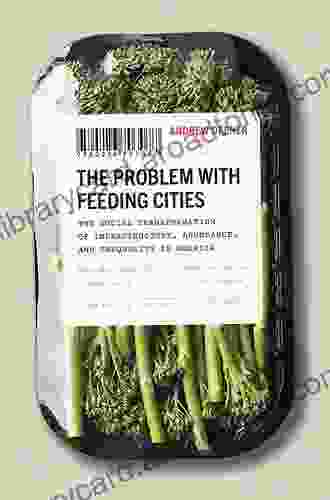The Social Transformation of Infrastructure: Abundance and Inequality in America

Infrastructure is a fundamental aspect of modern society, shaping the way we live, work, and interact with our environment. From roads and bridges to water systems and energy grids, infrastructure provides the foundation upon which our society thrives. However, the distribution and quality of infrastructure vary widely across different communities, leading to profound social and economic consequences.
In recent decades, America has witnessed an unprecedented expansion of its infrastructure network. New highways, airports, and internet cables have connected communities and facilitated economic growth. However, this abundance of infrastructure has not been evenly distributed, with some areas benefiting disproportionately from these new investments.
Urban centers and affluent suburbs have seen substantial upgrades in transportation, water, and energy systems, while rural and low-income communities often struggle with crumbling infrastructure and a lack of basic services. This disparity has created a growing divide between those who have access to reliable and efficient infrastructure and those who do not.
4.8 out of 5
| Language | : | English |
| File size | : | 3675 KB |
| Text-to-Speech | : | Enabled |
| Screen Reader | : | Supported |
| Enhanced typesetting | : | Enabled |
| Word Wise | : | Enabled |
| Print length | : | 328 pages |
| Lending | : | Enabled |
The uneven distribution of infrastructure has severe implications for social and economic equity. Communities with inadequate infrastructure face numerous challenges, including:
• Health risks: Poor water quality, air pollution, and lack of sanitation can lead to health issues, such as respiratory problems, gastrointestinal illnesses, and developmental disFree Downloads.
• Educational disparities: Students in schools with inadequate facilities, such as poor lighting, ventilation, and technology, may struggle academically and have lower educational attainment.
• Economic disadvantages: Lack of access to reliable transportation, energy, and water can hinder job opportunities, business development, and economic growth.
The inequality of infrastructure perpetuates a cycle of poverty and disadvantage, limiting the life chances of individuals and communities.
Infrastructure plays a crucial role in shaping social outcomes and facilitating social transformation. By providing essential services and connecting communities, infrastructure can:
• Improve health and well-being: Access to clean water, sanitation, and reliable energy can significantly improve health outcomes and reduce the burden of disease.
• Enhance educational opportunities: Adequate school facilities, technology, and transportation can create more equitable learning environments and improve educational outcomes.
• Promote economic development: Investment in infrastructure can stimulate economic growth, create jobs, and increase access to opportunities.
• Foster social cohesion: Transportation systems, parks, and other public spaces can facilitate interaction and build community.
When infrastructure is designed and implemented in a socially responsible manner, it can be a powerful tool for promoting equity and social progress.
To address the challenges of infrastructure inequality, it is essential to rethink our current policies and approaches to infrastructure development. This requires:
• Equitable distribution of resources: Infrastructure investments should prioritize underserved communities and address historical disparities.
• Community engagement: Infrastructure projects should involve local residents in the planning and decision-making process, ensuring that they meet the needs and priorities of the community.
• Sustainability and resilience: Infrastructure development should consider environmental impacts and build resilience to climate change and other threats.
• Innovative financing models: Explore alternative financing mechanisms to attract private investment and ensure the affordability of infrastructure services.
The social transformation of infrastructure is an ongoing process that requires a collective effort from governments, communities, and the private sector. By investing in equitable and sustainable infrastructure, we can create a society where everyone has access to the essential services and opportunities they need to thrive. The future of our society depends on our ability to harness the power of infrastructure for social progress and the creation of a more just and equitable world.
4.8 out of 5
| Language | : | English |
| File size | : | 3675 KB |
| Text-to-Speech | : | Enabled |
| Screen Reader | : | Supported |
| Enhanced typesetting | : | Enabled |
| Word Wise | : | Enabled |
| Print length | : | 328 pages |
| Lending | : | Enabled |
Do you want to contribute by writing guest posts on this blog?
Please contact us and send us a resume of previous articles that you have written.
 Book
Book Novel
Novel Page
Page Chapter
Chapter Text
Text Story
Story Genre
Genre Reader
Reader Library
Library Paperback
Paperback E-book
E-book Magazine
Magazine Newspaper
Newspaper Paragraph
Paragraph Sentence
Sentence Bookmark
Bookmark Shelf
Shelf Glossary
Glossary Bibliography
Bibliography Foreword
Foreword Preface
Preface Synopsis
Synopsis Annotation
Annotation Footnote
Footnote Manuscript
Manuscript Scroll
Scroll Codex
Codex Tome
Tome Bestseller
Bestseller Classics
Classics Library card
Library card Narrative
Narrative Biography
Biography Autobiography
Autobiography Memoir
Memoir Reference
Reference Encyclopedia
Encyclopedia Frank H Laukien
Frank H Laukien Elizabeth Godsmark
Elizabeth Godsmark Rolf A Jacobson
Rolf A Jacobson Alison Taylor Brown
Alison Taylor Brown Alexandra Morris
Alexandra Morris Concetta Bertoldi
Concetta Bertoldi Albert Furrer
Albert Furrer Alexander Bogolyubov
Alexander Bogolyubov Alasdair Gray
Alasdair Gray Craig Gygi
Craig Gygi Gregory B Baecher
Gregory B Baecher Alison J Clarke
Alison J Clarke Alexander I Petroianu
Alexander I Petroianu Alan Eisenstock
Alan Eisenstock Nicolas Diat
Nicolas Diat Betsey Lewis
Betsey Lewis Emily Sander
Emily Sander Alan Johns
Alan Johns Alexander Parker
Alexander Parker Albert H Segars
Albert H Segars
Light bulbAdvertise smarter! Our strategic ad space ensures maximum exposure. Reserve your spot today!
 Liam WardFollow ·18.4k
Liam WardFollow ·18.4k Nathaniel HawthorneFollow ·6.3k
Nathaniel HawthorneFollow ·6.3k Isaac AsimovFollow ·12.1k
Isaac AsimovFollow ·12.1k Aleksandr PushkinFollow ·9.5k
Aleksandr PushkinFollow ·9.5k Julian PowellFollow ·5.1k
Julian PowellFollow ·5.1k Duncan CoxFollow ·9.2k
Duncan CoxFollow ·9.2k Leon FosterFollow ·17.5k
Leon FosterFollow ·17.5k Albert CamusFollow ·2.8k
Albert CamusFollow ·2.8k

 Joshua Reed
Joshua ReedBelieving, Living, and Enjoying by the Word: Unlock the...
In a world filled with...

 Cason Cox
Cason CoxUnveil the Extraordinary World of "The Alexiad": A...
Delve into the Heart of Byzantine...

 Junot Díaz
Junot DíazUnveiling the Intricacies of Intellectual Property: Your...
In today's knowledge-driven economy,...

 Aleksandr Pushkin
Aleksandr PushkinThe Life of Louise Mathew Gregory: A Tapestry of Triumphs...
A Woman of Extraordinary Substance Louise...

 Leon Foster
Leon FosterHomemade Lotion For Beginners: Transform Your Skincare...
Step into the world of...

 Terence Nelson
Terence NelsonUnveiling the Secrets of Radio, Television, and Film: An...
: Embarking on a Journey into the...
4.8 out of 5
| Language | : | English |
| File size | : | 3675 KB |
| Text-to-Speech | : | Enabled |
| Screen Reader | : | Supported |
| Enhanced typesetting | : | Enabled |
| Word Wise | : | Enabled |
| Print length | : | 328 pages |
| Lending | : | Enabled |











